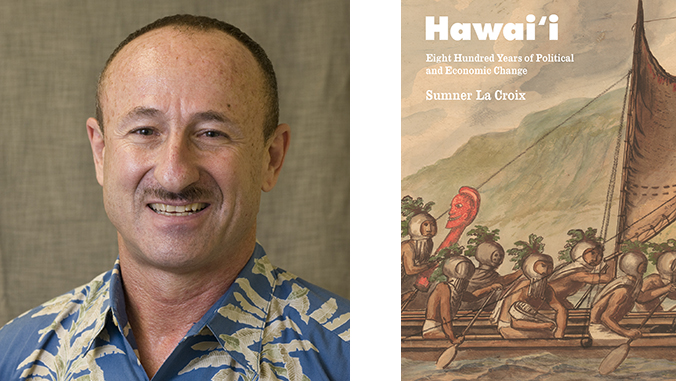
The political and economic history of Hawaiʻi, from the first Polynesian settlements in 1200 to the present day, is the subject of a new book by Sumner La Croix. The University of Hawaiʻi at Mānoa emeritus professor of economics’ new work, Hawaiʻi: 800 Years of Political and Economic Change, delves into more than eight centuries of Hawaiʻi’s history.
The book highlights the first Polynesian settlements in the 12th and 13th centuries and continues through the 20th-century transition from U.S. colony to U.S. state. La Croix builds on new archaeological and historical research to showcase how knowing more about the economic and political institutions in place centuries earlier allows us to see clear linkages with today’s institutions and outcomes.
“I had been publishing research on Hawaiʻi‘s economic history for 35 years and it was really important to me to bring it all together in a more unified way,” La Croix said. “The book’s use of modern economic and political theory to understand Hawaiʻi‘s history will hopefully provide a reader with new perspectives on Hawaiʻi‘s history.”
More on La Croix
La Croix is also a research fellow with the University of Hawaiʻi Economic Research Organization (UHERO). His research focuses on the economic history of Hawaiʻi, institutional change, property rights in land and intellectual property rights in the Asia-Pacific region. La Croix’s articles have recently appeared in leading economics journals, including Research Policy, Journal of Economic History, International Economic Review, Handbook of Cliometrics, and Economic History Review. He is on the editorial board of Journal of Economic History, is an executive editor for Journal of Asian Economics, and an associate editor of Asian Economic Journal and Australian Economic History Review.
In 2016, La Croix was awarded the “Clio Can” by the Cliometrics Society, which recognizes leading scholars in economic history who have provided exceptional service to the field of cliometrics.
—By Marc Arakaki

